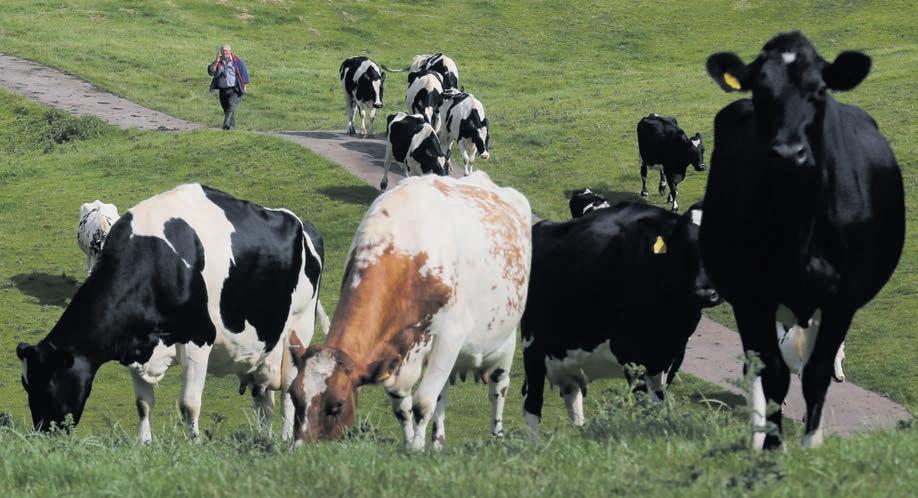
3 minute read
THE NOTE BOOK
by cityam
Friend or foe? Why we should avoid snap calls on the future of artificial intelligence
Last week, almost every front page of our national newspapers quoted the ‘AI pioneers’ warning us that AI advancements may lead to our own extinction – akin, they said, to nuclear weapons or another pandemic. Of course, whenever an expert of this status takes to the floor, we must listen. But, at the same time, won’t the ‘existential risk’ of AI depend largely on how we apply it?

Although we should certainly monitor the usage of artificial intelligence, we should also be embracing the potential of this technology to truly reap its benefits. As we have already discovered, AI can improve our lives in innumerable ways –from optimising work, accelerating cures for illnesses, driving progress towards a carbonfree world, enhancing education, powering economic growth, and helping emerging nations to rapidly industrialise.
Creating the conditions for AI to evolve safely will be crucial to this progress. But most importantly, we need to train people –especially our young people –how to use the technology properly. As many of our children prepare for GCSEs and A-Levels this summer, I’m convinced that AI should form part of the curriculum. Soon enough, the modern arms race will be centred around who has the most AIsavvy workforce, and who can maximise this tool as an enhancer of innovation, productivity and creativity. It is not in our best interest to simply dismiss AI as an apocalyptic event in the making. Engaging in conversation about how we use it is vital, which is why this week, Here East is convening the best and brightest minds to discuss the AI debate at our campus in East London. We hope to make some considerable headway in answering the question –AI: friend or foe?
Where interesting people say interesting things. Today, it’s Gavin Poole, chief executive of Stratford tech hub Here East
Staying On Top As Difficult As Getting There
£ According to recent research, London has snatched the global tech capital crown from New York. I was somewhat surprised to hear that we were in a tussle for this crown. Having spent time in Austin at this year’s SXSW festival, there was no disputing that London firmly held this title. As London Tech Week approaches, I hope discussion will focus on how London is one of the best cities in the world for businesses in tech, and on how we can retain our global status.
VIRTUAL REALITY, REAL SKILLS
London Has Stolen A March On Esports
President Macron has recently won plaudits for efforts to position France as a ‘great esports nation’. We shouldn’t overlook London’s pioneering efforts though. Specifically in East London, where post Olympic Games, the Queen Elizabeth Olympic Park has been transformed into a leading destination for gaming, with the mayor of London recently calling it a “global leader in esports.”. Just last month, major esports tournaments took place at the Olympic Park, including the 20-day League of Legends tournament, which welcomed thousands to East London. With Paris hosting the Olympics next year, Macron’s support of the esports scene seems like an apt time to consider London’s own Olympic legacy –and promote it too.
£ At a Meta summit last month, Nick Clegg extolled virtual reality’s “transformative” role in training and education. At Here East, we have been experimenting with this technology to delve into a virtual world - one that experts predict we will be spending more and more time in. The UK continues to face difficult questions about our digital skills gap and how we create growth opportunities to build the UK’s very own Silicon Valley. As with AI, the answer is simple: embrace, understand, learn, then master.
ABF owns a host of well-known brands as well as continuing to expand into its agricultural and food production hinterland
Primark owner ABF picks up milk data recorder
Guy Taylor
THE PRIMARK owner and agrifood specialist Associated British Foods (ABF) has announced the £48m acquisition of agritech and dairy information provider National Milk Records (NMR), as it eyes expanding its dairy strategy.

NMR offers data on a number of dairy products and has a laboratory at Four Ashes, near Wolverhampton. The price represented around an 87 per cent premium on the firm’s pre- existing share price.
AB Agri – a subsidiary of ABF and the businesses agri-food arm – will buy the company as it looks to strengthen its agri-food unit and dairy segment of the business, which has shown growth recently.
Jose Nobre, chief executive of AB Agri, said: “I am delighted to be announcing AB Agri’s intention to acquire NMR. NMR is a high-quality business which is extremely complementary and additive to our dairy strategy and offering to the dairy industry.”
“We have supported dairy farmers for more than 30 years with nutrition and speciality feed products, and more recently with data and technology platforms which deliver insights that create continuous improvement in agricultural supply chains. Acquiring NMR is an extension of this strategy.”
NMR offers milk recording, herd health services and genetic testing services amongst other operations.








